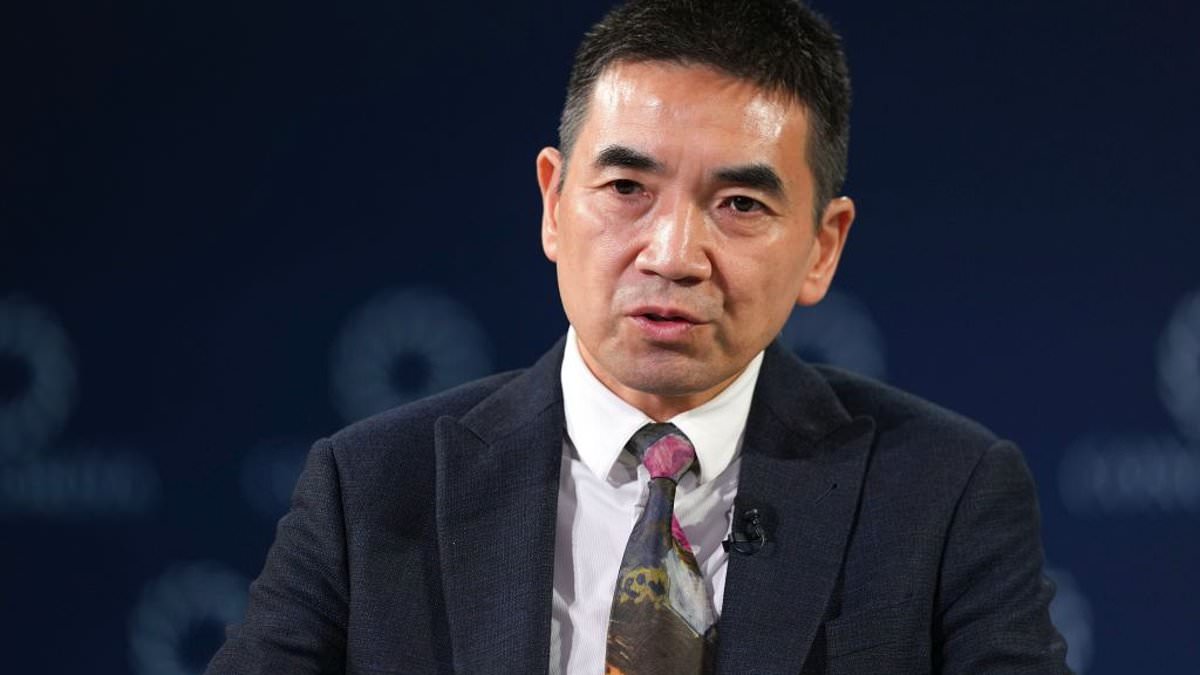By Editor,James Gordon
Copyright dailymail

The five-day workweek could soon be a thing of the past according to Zoom CEO Eric Yuan, who has become the latest tech executive to signal a dramatic rethinking of office life in the age of AI.
‘I feel like if AI can make all of our lives better, why do we need to work for five days a week?’ Yuan asked The New York Times.
Yuan predicts that most companies will soon adopt three- or four-day schedules as automation eliminates the need for round-the-clock human labor.
The comments add fuel to a growing movement among corporate leaders who believe AI tools will not only reshape how people work, but when they work.
For many employees, it could mean fewer hours on the clock – or perhaps no job at all.
‘Every company will support three days, four days a week,’ Yuan said. ‘I think this ultimately frees up everyone’s time.’
But while the Zoom chief framed the shift as a net positive, he acknowledged that job losses are inevitable as AI agents replace human workers.
Yuan’s comments echo those of other tech titans, including Microsoft co-founder Bill Gates, Jensen Huang of Nvidia, and Jamie Dimon CEO of JPMorgan Chase, who have also floated the idea of a reduced workweek.
While some executives see an era of leisure and innovation, others are bracing for mass layoffs and job losses.
‘Whenever there’s a technology paradigm shift, some job opportunities are gone, but it will create some new opportunities,’ Yuan acknowledged.
‘For some jobs, like entry-level engineers, we can use A.I. to write code. However, you still need to manage that code. You also create a lot of digital agents, and you need someone to manage those agents.’
In February, Bill Gates mused on The Tonight Show that the accelerating pace of AI innovation would radically shrink the human workload.
‘What will jobs be like? Should we just work like 2 or 3 days a week?’ he asked host Jimmy Fallon. ‘If you zoom out, the purpose of life is not just to do jobs.’
Nvidia CEO Jensen Huang, whose company recently crossed a $3 trillion valuation amid the AI boom, agrees
‘We’re just at the beginning of the AI revolution,’ Huang told CNN. ‘We’ll probably have a four-day workweek… [but] we’re going to be busier in the future than now.
‘Over the course of the last 300 years, 100 years, 60 years, even, in the era of computers, not only did productivity go up, employment also went up,’ Huang said.
‘Now the reason for that is if we have an abundance of ideas, ways that we could build a better future, if we were more productive, we could realize that better.’
During the industrial revolution, machines replaced many labor-intensive jobs but created new ones in logistics, engineering, and management. The internet did the same for clerical and communication roles.
Such efficiency comes at a cost. Anthropic CEO Dario Amodei has warned a white-collar ‘jobs armageddon’ could be on the way, while Klarna CEO Sebastian Siemiatkowski has said how believes automation helped the company replace 700 employees – without hiring new staff.
Even Jamie Dimon has conceded that AI could bring relief to the overworked.
‘Your children are going to live to 100 and not have cancer because of technology,’ Dimon told Bloomberg TV in 2023. ‘And literally they’ll probably be working 3 and a half days a week.’
In 2022, a pilot study of the four-day workweek in the UK showed positive results including increased employee satisfaction, reduced burnout, and higher productivity.
In the US, performance coaching firm Exos found that shaving off a day from the calendar cut employee burnout in half and boosted output by 24 percent.
Tedious tasks like email drafting, scheduling, and even basic coding are now being handled by smart agents – virtual assistants that don’t sleep, complain, or require lunch breaks.



